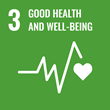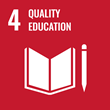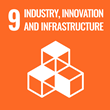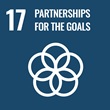Project information
From fragments to high affinity binders interfacing integrated structural biology, medicinal chemistry and artificial intelligence
(Fragment-Screen)
- Project Identification
- 101094131
- Project Period
- 2/2023 - 1/2026
- Investor / Pogramme / Project type
-
European Union
- Horizon Europe
- Research Infrastructures
- MU Faculty or unit
- Central European Institute of Technology
- Cooperating Organization
-
Johann Wolfgang Goethe-Universität
Universidade de Lisboa
Universiteit Utrecht
CIRMMP Consorzio Interuniversitario
Agencia Estatal Consejo Superior
Latvian Institute of Organic Synthesis
Instruct ERIC
- Responsible person Harald Schwalbe
EU-OPENSCREEN ERIC
EMBL (EUROPEAN MOLECULAR BIOLOGY LABORATORY)
The Netherlands Cancer Institute
Fciencias.ID, Associacao para a Investigacao e Desenvolvimento de Ciencias
European Synchrotron Radiation Facility (ESRF)
Bruker BioSpin GmbH
SIGNALS GmbH & Co. KG
Fei Electron Optics Bv
ALPX
ARINAX
Fragment-Screen will develop innovative instrumentation, workflows and experimental and computational methodologies for fragment-based drug discovery (FBDD) enabling access to early phase structure-based drug discovery for all biological targets and for scientists both in industry and academia. The established workflows will use structural biology insights and associated data to feed artificial intelligence (AI) methodology to guide medicinal chemistry in drug development. Fragment-Screen brings together scientists from four ESFRI Landmark research infrastructures (RIs): ESRF (the European synchrotron) and the distributed RIs EUOPENSCREEN ERIC (medicinal chemistry), ELIXIR (data resources for life science) under the coordination of Instruct-ERIC (integrated structural biology) and seven industry partners in scientific instrumentation and computational and AI sectors including SMEs to remove crucial bottlenecks in early phase drug discovery. The new instrumentation and workflows will be available at European RIs, while the new instruments will be commercialised to increase the technological competitiveness of European industry in drug design and the attractiveness of structural biology RIs for the pharmaceutical and biotech sectors. Fragment-Screen will implement open science approaches in early drug discovery to maximise the impact of screening campaigns. Generated data will be made accessible so that iterative cycles applying AI will improve response times for drug discovery. We will create a framework for the objective and independent evaluation of AI in drug design to identify critical developments in this thriving research field. Methodologies for rigorous cross-validation will be established through demonstrator and pilot studies and results will be disseminated to the large scientific communities affiliated to the European RIs and beyond.
Sustainable Development Goals
Masaryk University is committed to the UN Sustainable Development Goals, which aim to improve the conditions and quality of life on our planet by 2030.
Publications
Total number of publications: 2
2025
-
Structural basis of bis-quinolinium ligands binding to quadruplex-duplex hybrids from PIM1 oncogene
Nucleic Acids Research, year: 2025, volume: 53, edition: 17, DOI
2024
-
Structural Optimization of Azacryptands for Targeting Three-Way DNA Junctions
ANGEWANDTE CHEMIE-INTERNATIONAL EDITION, year: 2024, volume: 63, edition: 36, DOI



